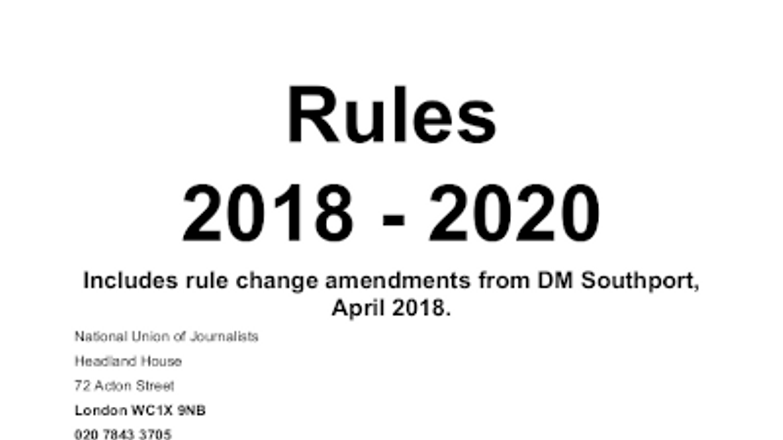The union rule book lays out the democratic structure of the NUJ, the membership rates and who can be member.
The rule book also contains the NUJ code of conduct, membership responsibilities, suggested branch and chapel standing orders and detailed information about how the union operates.
The rule book is a legal document and can only be amended by rule changing motions at the delegate meeting.
The current rule book is from 2025-2027

